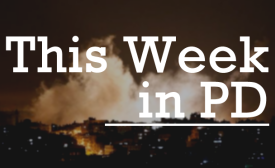Digital Diplomacy & New Technology
As social media has emerged as a key communications tool, the External Affairs Ministry has come on the top among various ministries and government departments in terms of its presence on digital platforms like Facebook, Twitter, YouTube and Google+.
Public-facing social media tools give leaders from small countries the ability to magnify their power and influence, according to Alec Ross, who served as senior advisor for innovation to former Secretary of State Hillary Clinton.
If Narendra Modi wants, he has all the knowledge and inside view required to write a bestseller on how best to use the social media, a platform he made a priority long before hitting the Lok Sabha campaign trail. His priority hasn't changed after his sweeping victory and prime ministership. In fact, his love for Twitter and Facebook only seems to be growing along with the band of people tracking him online.

As tensions between Israel and Hamas continue to escalate in the Gaza Strip, another battle is raging on social media for the support of American and global audiences.
Poland is to put $100 million (300 million Zloty) into supporting small Ukranian companies, which will obviously include tech companies by implication, and allow more Ukranian companies to list on its stock exchange.
It has had its fair share of social media scandals and been accused of buying fake Facebook likes, but the White House believes the benefits of being an active participant in the uncertain world of social media still far outweigh the risks. It calls it digital diplomacy.
Back in June, Iran’s presidential elections had a surprise winner: reformer Hassan Rouhani. Western-educated, Rouhani took to Twitter to express his more favorable views of the U.S. He even suggested he was open to a new approach on the nuclear issue. Rouhani’s attitude (and his openness about it on public forums like Twitter) eased US-Iran relations.







